AUGUSTA — More than 2,000 people of all ages — most of them women, many wearing pointy pink hats — came to the State House on Saturday as part of a national demonstration for women’s rights and other progressive causes.
The rally included a march around Capitol Park and speeches from lawmakers and activists, as well as a similar set of outfits and sharply worded signs that were seen one year ago, when women’s marches were held in Augusta and around the country a day after the inauguration of President Trump.
One participant, Peggy Pickering, 67, a retired psychiatric nurse from Camden, said she also attended last year’s march in New York City.
This year Pickering was protesting the Trump administration’s views on policies such as Deferred Action for Childhood Arrivals, or DACA, which has been at risk in Congress’ recent budget negotiations. She held a sign over her head that featured a hand-drawn illustration of the female anatomy and the words, “We’re not ovary-acting.”
“I’m here to support women’s rights and to encourage anyone, men and women, to not let their guard down and continue to fight for what you feel is important,” Pickering said, adding that she also cares about abortion rights and the Affordable Care Act, among other causes that she thinks Trump threatens.
On Saturday, similar rallies also were held in Bangor, Bar Harbor and Gouldsboro.
The march in Augusta was organized by groups including March Forth Maine, Suit Up Maine, Capital Area Indivisible and the Maine Democratic Party. It didn’t match the size of last year’s, when Capitol Police estimated 5,000 people went to the State House. Both police and organizers said about 2,500 people attended this year’s rally, which was focused on getting women to run for office. Its title was Maine’s Women March 2.0: Power to the Polls.
Another demonstrator, 12-year-old Carly McCabe of Skowhegan, attended last year’s march in Augusta, which she thought was “awesome.” This year she came with her mother, Sara McCabe, and two friends, Deyonce Ward, 12, and Thalia Barden, 16.
Asked if any of them were planning runs for office, Carly McCabe quickly replied, “I want to be president of the United States.”
On Saturday, there was a small group of counterdemonstrators, about four in all, who met the rally as it marched along Capitol Street.
One of them, an Augusta man who goes by the single name Jarody, waved an obscure, green flag for the fictional kingdom of Kekistan. According to the Southern Poverty Law Center, such flags loosely mimic the design of the German Nazi war flag and are meant to offend liberals who recognize its origins.
But the demonstration remained peaceful. As incense burned and drums were banged, organizers collected signatures for causes such as ranked-choice voting. Many attendees expressed appreciation for the sunny, warmer weather.
The heart of the rally was a series of speeches from activists and state lawmakers, past and present.
The speakers included Sara Gideon of Freeport, a Democrat who is speaker of the Maine House of Representatives; and Emily Cain, a former state lawmaker who has made two runs for Congress and now heads Emily’s List, a Washington, D.C.-based organization that supports the campaigns of pro-choice Democratic women.
Other speakers representing a diverse set of minority groups spoke of the ways that their concerns should be considered within the larger picture of women’s rights. One of them, June Sapiel, is a member of the Penobscot Nation who protested last year against the Dakota Access Pipeline.
Another speaker, who identified herself using just the letter S, said that she immigrated to the U.S. with her parents when she was 13 and is one of the so-called Dreamers who now could face deportation depending on the outcome of Congress’ negotiations over the DACA program.
A third speaker, Quinn Gormley of Damariscotta, identified herself as transgender and described ways the Trump administration has pulled back protections for people like her.
A fourth, Fatuma Hussein, described the contributions that she and other Somali immigrants have made to Lewiston and the state. She urged the demonstrators to stand up for those who are attacked, whether they’re children being targeted in schools or immigrants being labeled terrorists.
“When we become the voices for people who don’t have voices, then we thrive,” Hussein said, to lots of applause and hollers of agreement. “It’s important for us to celebrate goodness and good things.”
With a surge in interest by Maine women in positions of higher office and a series of elections on tap for 2018, Cain said that it’s “already being called the year of the woman.”
“This is not a moment,” she said. “This is a sea change.”
The rallies last year were meant as a protest about Trump’s inauguration. This year, the rallies also were fueled by the #MeToo movement, which has amplified sexual harassment accusations against powerful men across various industries.
Many of the women whom Gideon knows were able to say “Me too,” the Freeport lawmaker said in her remarks, meaning that they too have experienced sexual harassment and abuse.
Gideon also spoke of other problems women face in the areas of reproductive health, wages, child care and political representation. While women are the first to suffer from those problems, she said, they also “affect every man and child among us.”
Then Gideon described a recent day that reminded her of the need to push against those problems. On that day, she had to bring her 10-year-old daughter to the State House because the girl’s school had a snow day.
“She and millions of other girls are why I do what I do,” Gideon said. “I think this is true for all of us. They are the reason we march.”
Send questions/comments to the editors.


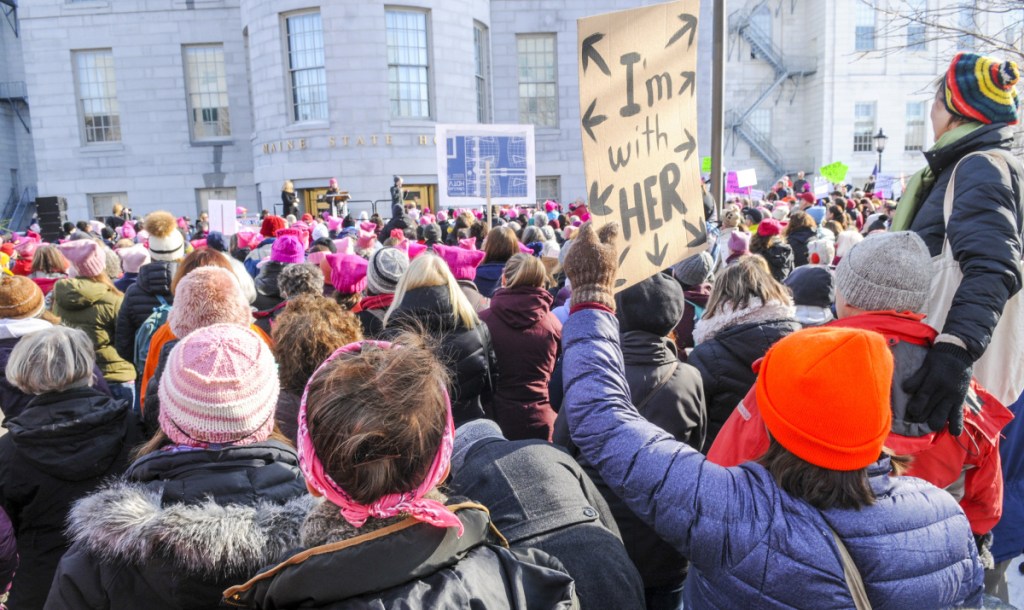
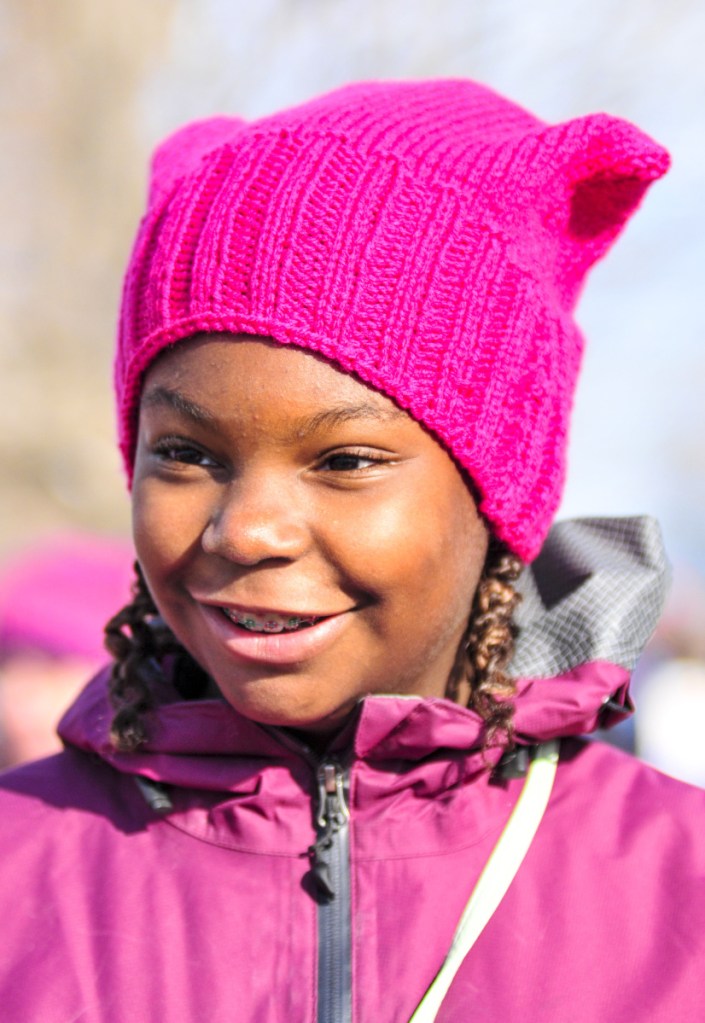
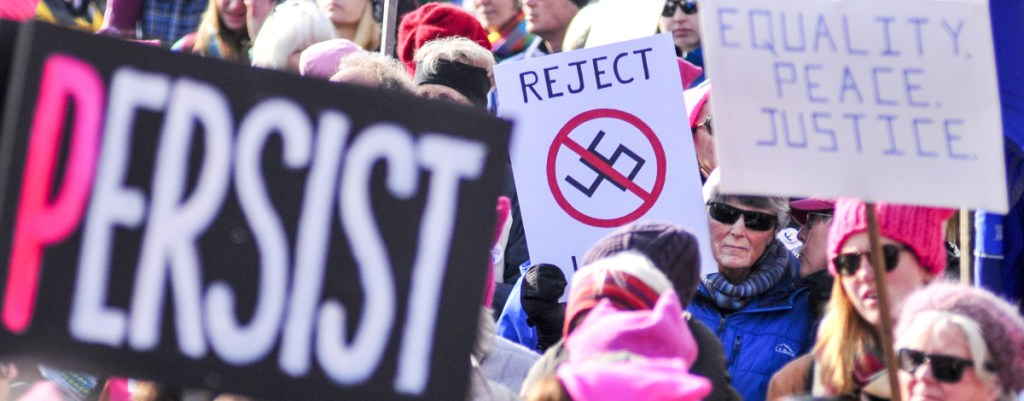
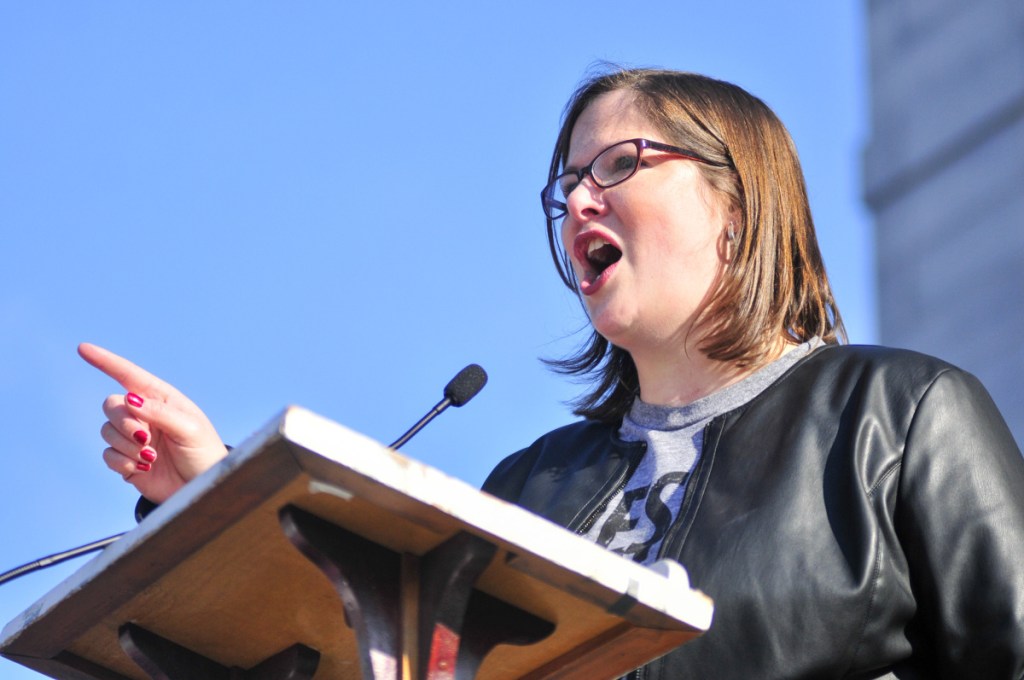
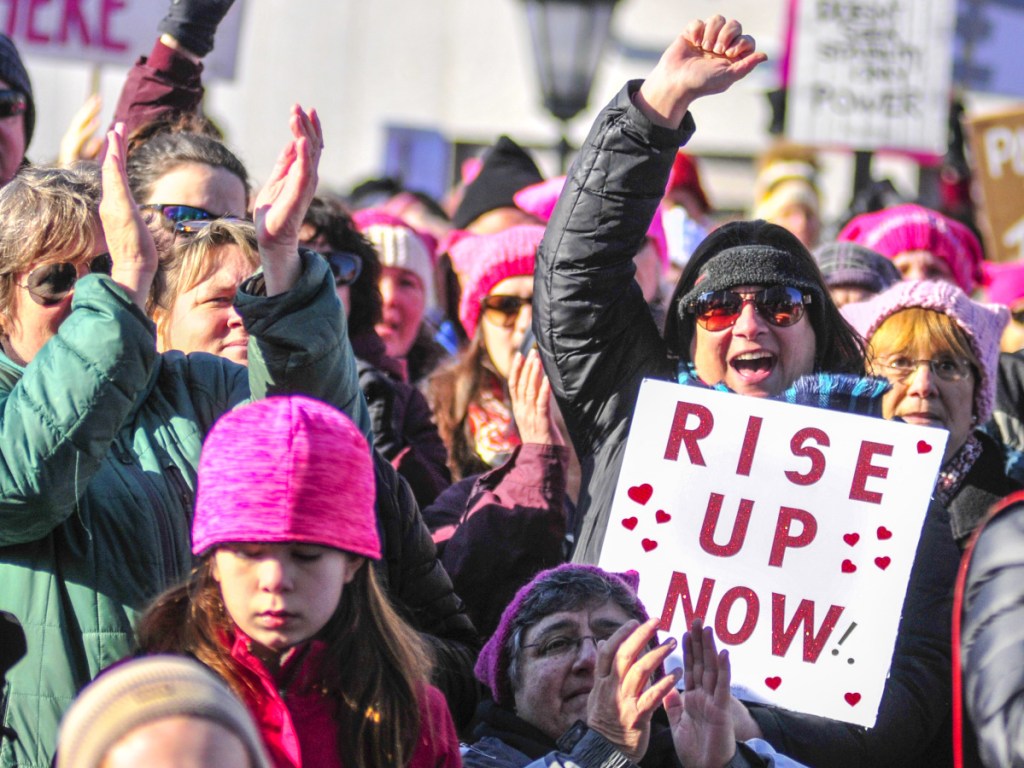
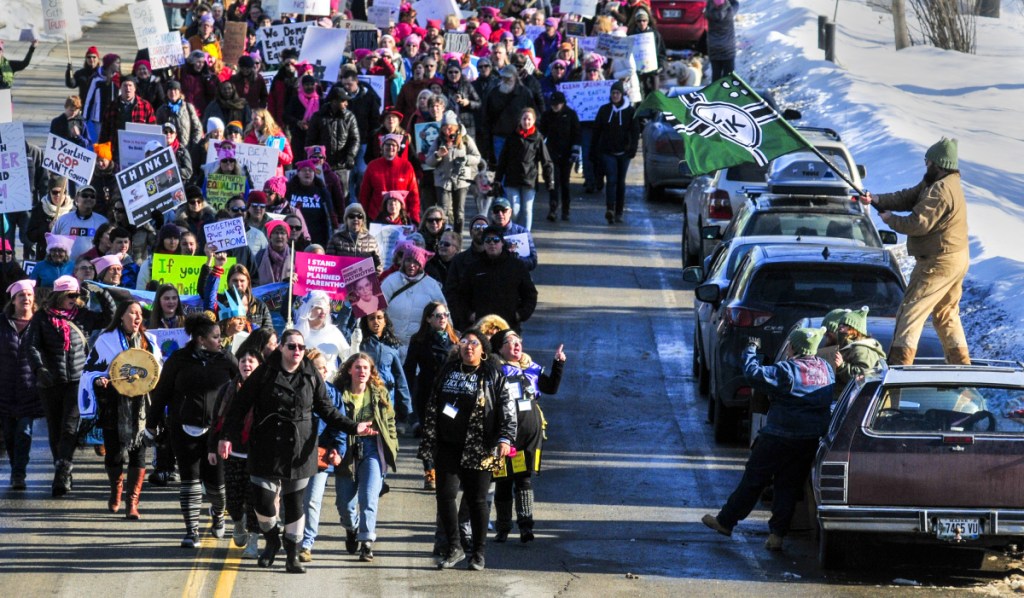
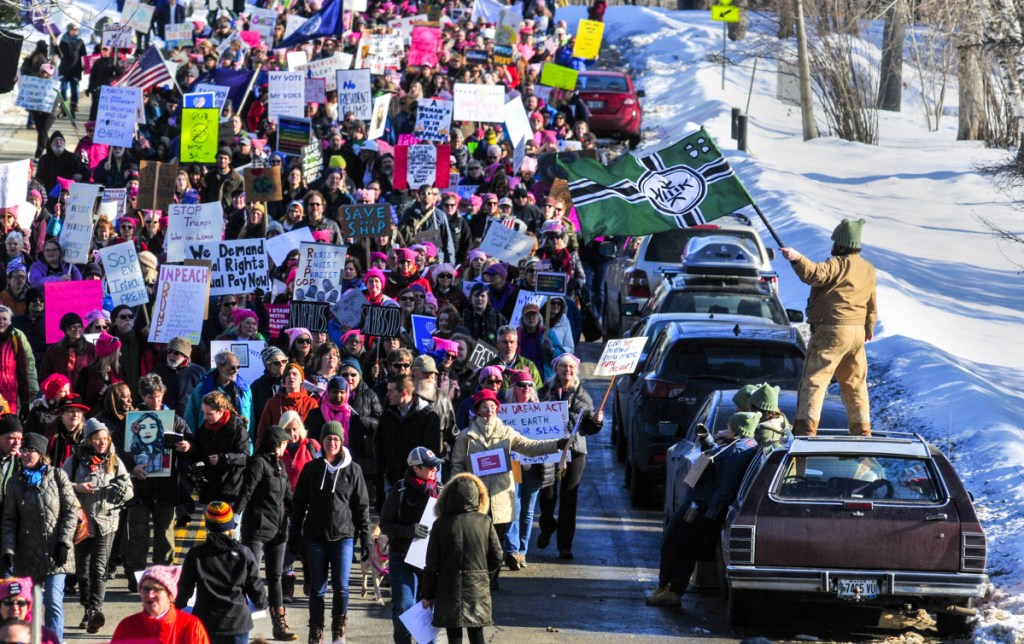
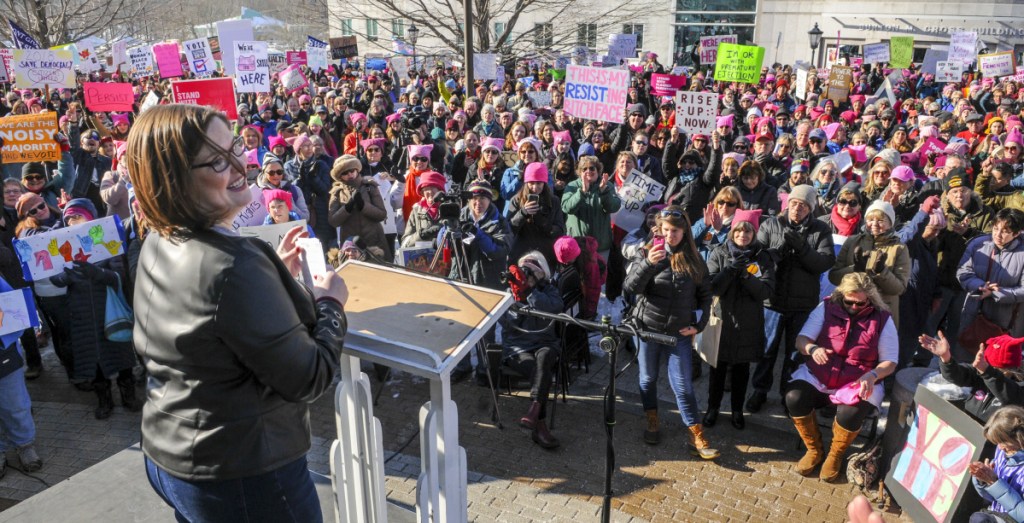
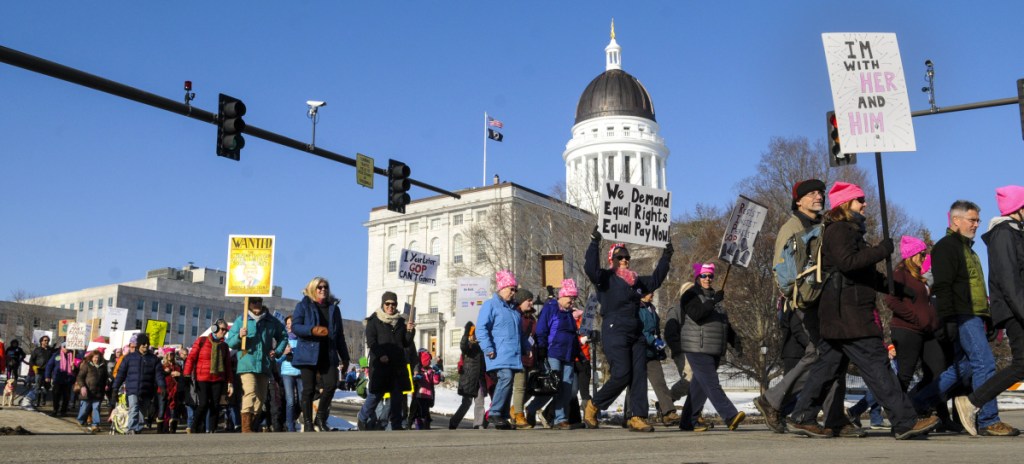
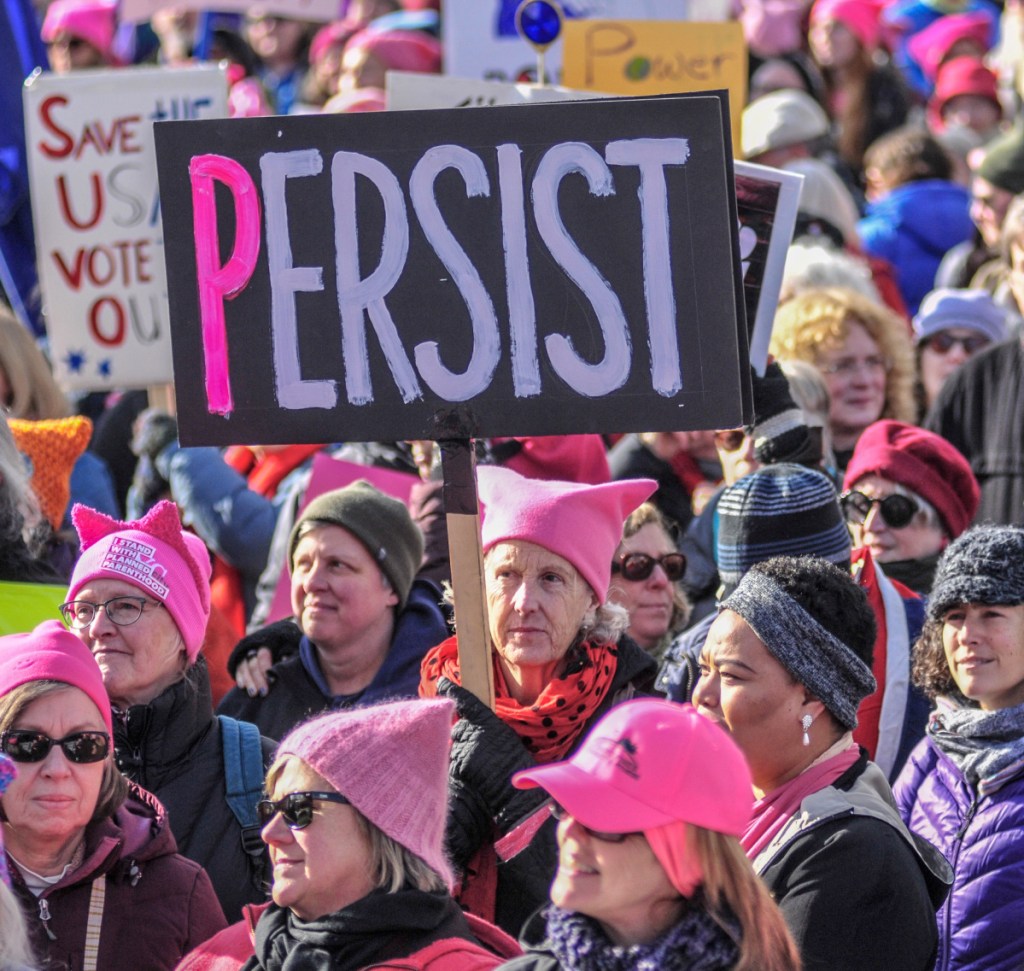

Success. Please wait for the page to reload. If the page does not reload within 5 seconds, please refresh the page.
Enter your email and password to access comments.
Hi, to comment on stories you must . This profile is in addition to your subscription and website login.
Already have a commenting profile? .
Invalid username/password.
Please check your email to confirm and complete your registration.
Only subscribers are eligible to post comments. Please subscribe or login first for digital access. Here’s why.
Use the form below to reset your password. When you've submitted your account email, we will send an email with a reset code.